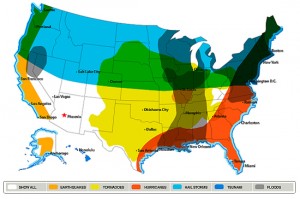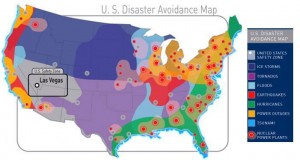This site is for emergency information only! If you have an emergency or if you are in danger call 911
Full Scale Mock Disaster 8/19/17
At 9am there will be a full scale mock disaster to take place in Downtown Hastings. Church street will be closed from Court to Center and Center street will be closed from Broadway to Church. Law enforcement, EMS, Fire Departments, 911, Emergency Management and Spectrum Health Pennock are all participating.
November
Emergency Supplies
Any emergency is easier to handle when you have prepared ahead of time. Put together an emergency kit with important items to keep at home, and a go bag with items you will need to take with you if you evacuate. Think about what you and your family would need in a disaster. You can make kits for your home, car or workplace. Emergencies can happen anywhere.
When severe weather is predicted, make sure your car has a full tank of gas. You don’t want to wait in line for gas if you are told to evacuate. Some storms may also knock out electricity, causing gas stations to close.
October
Power
We count on electricity for heat, food, and medical needs. Many gas appliances even need electricity to run. A power outage is an emergency that often follows another emergency—like a hurricane, tornado, or winter storm. That makes it even more important to be prepared in advance.
Power Outage Safety
- Discard food if the temperature in your refrigerator exceeds 40 degrees for more than 2 hours.
- Stay away from downed power lines and anything they are in contact with such as fences or buildings.
- Never drive over downed power lines; they may be energized.
- Never use charcoal or gas grills inside a structure. You may be overcome by carbon monoxide.
- If you must use candles, be sure to use them safely. Never leave candles burning unattended.
September
Be Informed
Getting correct information during an emergency is the key to taking safe action. Someone in your household may not be able to receive, understand, or act on emergency information. Think about what special needs your household may have. Take action now to make sure everyone in your family will be safe in an emergency.
Things to consider…
- Emergency news or weather broadcasts may not be closed captioned.
- Information that is shown on screen may not be spoken aloud.
- Automated voices and voices over loud speakers may be hard to understand.
- Information comes quickly and the stress of a disaster may make it hard to understand or remember instructions.
- Words moving across the bottom of a television screen may move very quickly.
- The screen color or color of the text might make some information on television hard to read.
August
Get Involved
It takes more than police, fire and EMS to respond to a disaster. It takes people who are committed to neighborhoods, churches, schools and volunteer organizations. When people are willing to work together for the good of others, communities are stronger.
People who are involved are the key to a disaster resilient community. They are willing and able to look out for themselves and others. A resilient community is one that can withstand a disaster and get back to normal quickly (even if normal isn’t the same as it was before).
Remember, community preparedness starts at home. If you know that your family is prepared at home, you will be better able to help others in your community.
July
Family Communication Plan
Today we have more ways to speak with one another than ever before. We are used to staying in touch with cell phones, internet, and email, but disasters can change things. These devices may not be available. Cell phone towers quickly become overloaded with people trying to reach friends and family. If the power is out at your home, cordless phones, internet, and email will not work either.
June
Unique Family Needs
Every household is different. Is there an infant or young child in your home? Does someone in your family have a medical condition that requires medication? Do you have a pet? Before disaster strikes, talk to your family about your household’s unique needs. Make a list of special items you may need in a disaster.
May
Work, School & Community
Disasters can happen at any time. If you are away from home do you know where to find safe shelter locations? Do you know what the emergency procedures are for your child’s school or for your workplace? Will people who count on you know what to do if you can’t reach them? Know how to make sure you and your loved ones are safe in a disaster, no matter where you are.
<<<<>>>>
<<<<<Barry County Disaster Response TEST BROADCAST #2 >>>>>
Lorem Ipsum is simply dummy text of the printing and typesetting industry. Lorem Ipsum has been the industry’s standard dummy text ever since the 1500s, when an unknown printer took a galley of type and scrambled it to make a type specimen book. It has survived not only five centuries, but also the leap into electronic typesetting, remaining essentially unchanged. It was popularised in the 1960s with the release of Letraset sheets containing Lorem Ipsum passages, and more recently with desktop publishing software like Aldus PageMaker including versions of Lorem Ipsum.
April
Food
An emergency food supply doesn’t have to sit on a shelf, ready for disaster to strike (although it can). It can be part of the food you use every day. The key to a good food storage plan is to buy ahead of time. Replace items before they run out. Buy items when they are on sale. A large duffle bag or plastic tub with a lid makes a great storage place for an emergency food supply. Make sure your family, including pets, will have what they need when disaster strikes.
March
Sheltering
In a disaster you may be asked to either evacuate or shelter-in-place. In the excitement of an emergency, it can be difficult to focus on what you are doing. Know what to do to keep your family safe. Practice your tornado and fire safety plans. If your family has practiced, they will be more comfortable doing it when the emergency actually happens.



